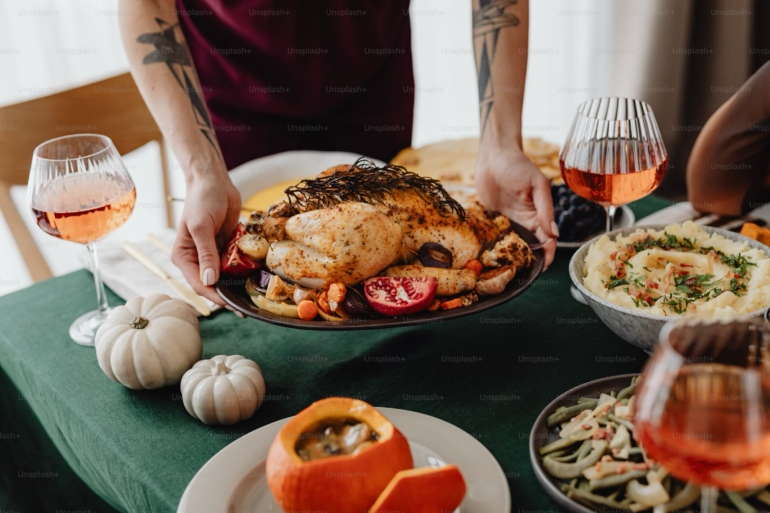As we move into a much-needed break, filled with family, food, Thanksgiving plans and (hopefully) some rest, one of the trends for this holiday season is a move away from
traditional American dishes and toward an array of global cuisine. I wonder, why the shift to expand our palettes, and do we lose something as we diverge from our own traditions?
Many of us like variety and novelty, focusing on the new. This is because change causes us to “experience an adrenalin rush, where we can feel the physical effects of the body’s anticipation of the change,” according to the U.S. Department of State’s article “Psychology of Change.” Perhaps this trend is a reflection of that. Maybe we just want a change. But beyond that, I think that we generally recognize that other foods simply taste good. It’s important not to take this discussion too deeply or read too much into what is simply another culinary trend. But at the same time, I think this does say something about our culture. It says that we want to interact with other cultures. It says that we are not satisfied with the cultural status quo. And personally, I think that is a good thing.
Cultures borrow and influence each other all the time. They cannot be well defined; the lines are a little blurred. But in a globally-aware world, we interact with other cultures on a daily basis. This constant exposure leads to an important exchange of ideas, practices and characteristics.
Think about language. If it weren’t for the languages that came before, English would not exist. We relied on languages such as German, French and Latin to give us our language. And now that English is well established, that dependence has not stopped. We continue to adopt words and phrases from other languages, and vice versa, creating what the Stanford Report refers to as “a cultural, social and psychological phenomenon.” Language is ever changing, ever growing. It needs these interactions to keep it alive.
Like language, culture is a living, breathing thing. We cannot draw firm lines between cultures and expect them to never change. We must allow for some movement among them. Because drawing on aspects of other cultures does not cheapen them. It does not disrespect their origins. I actually think it is a way of highlighting the value of another culture and then integrating that into our own lives as a way to promote change in our own cultures.
What gives culture meaning are our differences. No two cultures are alike, and I think it’s for our benefit to draw on the best in other cultures. New combinations and innovations shared across cultural borders make us stronger and draw us together. We should never lose what makes us unique; identity is important. But we should never hold on to our own identities to the point that we push others away and don’t allow them to partake in our way of life. Sharing your world is how relationships are established and grow.
I don’t see a problem with the current focus on global dishes. I think that the integration of other cuisines can give a fresh look to the dinner table. But I don’t think they should become a replacement for traditional American home cooking. It should be more of an addition, not a substitution. Because that’s how culture works. In a perfect world, it is a healthy balance where cultures are blended, not replaced.
Whether you are traveling this break or not, and whatever your holiday dinners may look like, both at Thanksgiving and Christmas dinner, take a moment to reflect on the food choices that are made. Find a moment to appreciate the traditions that have been handed down to you, while still making space for new medleys of ideas to pave the way for a new generation of holiday celebrations.




